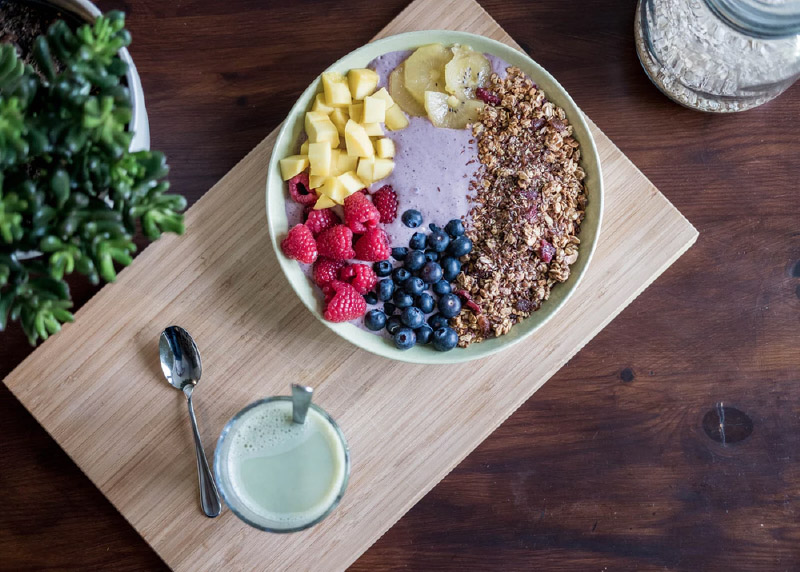Organic Food - Is it Healthier

What is organic food? Is it safer or more nutritious than conventionally farmed food? What food safety tips should we be following?
‘Consumers may choose to buy organic food because they believe that it is safer and more nutritious than other food. However, the balance of current scientific evidence does not support this view.‘ What is organic food? Organic crops are grown using natural fertilizers, such as manure or compost, rather than chemical fertilizers. Instead of using herbicides, weeds are kept in check by traditional means such as crop rotation (growing different crops in succession on each piece of land, rather than just the same crop each time), tilling the soil (turning it over and breaking it up) and hand weeding. Pests and diseases are countered by using birds, insects and traps, rather than insecticides.Organic meat comes from animals fed organic food and allowed access to the outdoors. Disease is minimized through rotational grazing (moving animals onto different pieces of land to graze, rather than staying in one place), a balanced diet and clean housing. Animals are not given antibiotics, growth hormones or medication – as they often are in conventional modern farming.
Should we be concerned about the chemicals used in conventional farming?
People are sometimes concerned by the potential health risks of consuming chemicals from the fertilizers, pesticides and insecticides used to grow food in conventional farming.
However, the UK’s Food Standards Agency advises, ‘Before pesticides are approved they are rigorously assessed to ensure they do not pose an unacceptable risk to human health or the environment, and that any pesticide residues left in food will not be harmful to consumers. Pesticide residues in the food chain are also monitored to check they are within legal and safe limits.’
What about antibiotics and growth hormones given to farm animals?
People are sometimes also concerned about the antibiotics, growth hormones and medication in the meat from animals reared on conventional farms.
However, the UK animal medicine industry argues there are many myths here.
A 2012 study reviewed the available evidence. It found no evidence of significant benefit for organic food in most areas. However, it did note, ‘the risk for isolating bacteria resistant to 3 or more antibiotics was higher in conventional than in organic chicken and pork (risk difference, 33%).’ It went on to conclude, ‘Consumption of organic foods may reduce exposure to pesticide residues and antibiotic-resistant bacteria.’
What about nutrition?
Research at the London School of Hygiene and Tropical Medicine was published in the American Journal of Clinical Nutrition. It analysed 162 articles published in the scientific literature over the last 50 years. The review found no evidence that organic and conventional foods differ significantly in their nutrient content.
A study led by Newcastle University, and published in the British Journal of Nutrition in 2015, suggested a more positive picture for organic food. According to Professor Carlo Leifert, ‘This study demonstrates that choosing food produced according to organic standards can lead to increased intake of nutritionally desirable antioxidants and reduced exposure to toxic heavy metals.’
However, the study’s methodology has been criticised. A possible conflict of interest has also been identified, as the study was part funded by the Sheepdrove Trust, a British charity that funds research which is pro-organic farming.
But Organic Tomatoes may be better for you.
Whilst the scientific evidence, as yet, appears to show no clear nutritional advantage for organic foods there is one possible exception: According to a 10 year study conducted by the University of California-Davis and published in 2007, organic tomatoes had significantly higher levels of two antioxidants ie quercetin (79% higher) and kaempferol (97% higher).
The Pros and Cons of Organic Milk
Research shows that organic milk has 30-40% less iodine content than its conventional counterpart owing to different farming strategies. Iodine status influences maternal thyroid functioning and children's neurocognition. Milk is the principal contributor to iodine intake which raises concern for vegans, pregnant or young women with pre-existing mild-to-moderate iodine deficiency in the UK.
Conversely, researchers at the Danish Institute of Agricultural Research in 2005, found organic milkhas more anti-oxidants, omega 3, CLA, and vitamins than non organic milk and, in 2004, the Institute of Grassland and Environmental Research in Wales also found higher levels of omega 3.
A 2016 review of published research confirmed that organic milk has higher levels of omega 3 but lower levels of iodine. So consider, whether the benefits outweigh the risks in your particular circumstances.
Food Safety Tips
The Mayo Clinic offers the following safety tips, whatever type of food you are eating:
Select a variety of foods from a variety of sources. This will give you a better mix of nutrients and reduce your likelihood of exposure to a single pesticide.
Buy fruits and vegetables in season when possible, to get the freshest produce.
Read food labels carefully. Some organic products may still be high in sugar, salt, fat or calories.
Wash and scrub fresh fruits and vegetables thoroughly under running water. Washing helps remove dirt, bacteria and traces of chemicals from the surface of fruits and vegetables, although it may not remove all pesticide residues. You can also peel fruits and vegetables, but peeling can mean losing some fibre and nutrients.
Conclusions
Current research suggests:
• In general organic food isn’t more nutritious.
• However, organic tomatoes may be more nutritious than their non organic counterparts.
• Pregnant women, young women and vegans who drink organic milk and are already iodine-deficient should ensure adequate iodine intake from other sources.
• The levels of pesticide used when growing non organic food are controlled by government and levels of pesticide on the surface of food can be reduced by thorough washing.
• However eating organic foods may reduce overall exposure to pesticide residues and to antibiotic-resistant bacteria












